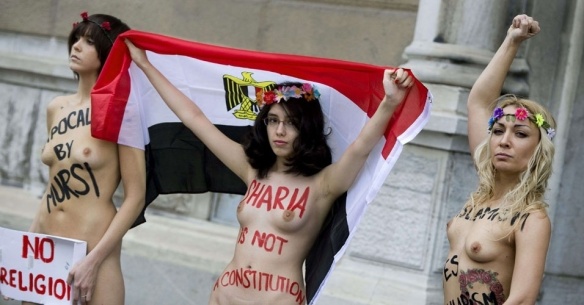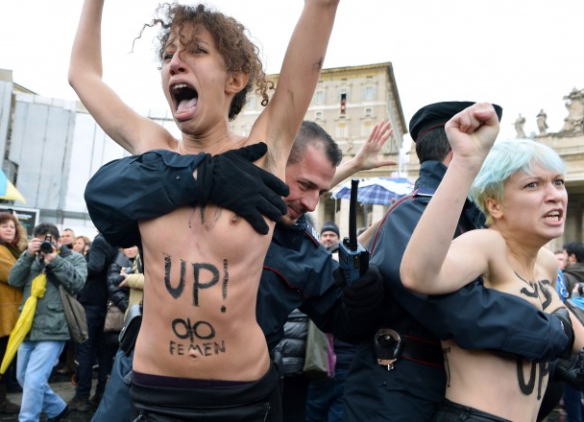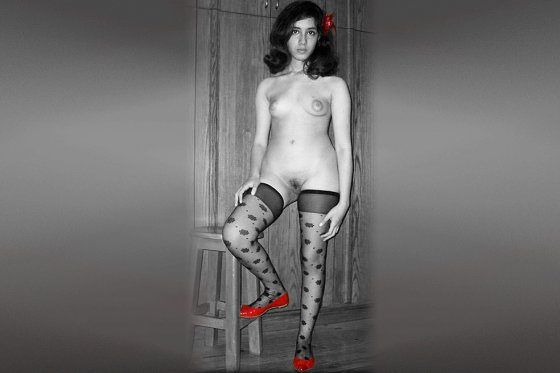“No Islamism. Yes to Secularism.”
One thing is to hear this phrase or read it in a magazine; another thing is to see it written on a naked female body. You guessed right, an activist, but apart from your appetite (or lack of it) for nudity, the one part I find really mystifying is that the activists doing it are part of a feminist group, the Ukrainian Femen, with the ‘guest-appearance’ of Aliaa ElMahdy, already a name that rings many bells in Egypt.
This week, Femen hit again, this time against the Pope: a topless protest against the Catholic Church’s objection to same-sex marriage. This time, they had the phrase ‘Shut Up’ painted on their naked torso.
Message(s) apart, why is nudity becoming a ‘shortcut’ for promoting feminist causes? Why do new-age feminists confuse activism for exhibitionism (and vice-versa)? To think that nudity is an immediate and assured way of attracting attention (specially media) and gain visibility is a no-brainer. To call this ‘art’ or ‘feminist activism’, that is a completely different story, because it usually ends up beating the whole purpose of feminism (by objectifying the female body once again).
The naked female body can and did serve as a brilliant medium (rather than object or subject) of art and gender activism; and the examples are anything but lacking: Marina Abramovic, Carolee Schneeman, Rebecca Horn, and the list goes on.
Back to Aliaa ElMahdy whose nude photo caused a scandal in Egypt when it was uploaded to the social networks, one can –again- trace the problem to a phrase that she herself said in labeling herself ‘Revolutionary Girl’, a very dangerous label in a country where hundreds of revolutionaries died down the streets while fighting for freedom and dignity. At the time, she claimed that she wanted to open a necessary debate about the taboos engendered in the society, specially those having to do with women. Sounds like a good thing to do, but in a country like Egypt, this type of ‘shock therapy’ is completely out of context, and more than anyone, she herself knew about it. In no time she started receiving both threats (from as far away as Iran) and messages of support from beyond the border (how about Israel for one?), and it all worked: the CNN interviewed her, followed by everyone on earth: visibility and publicity assured.
One should pause here and wonder: ‘but revolution…it’s not just what happens on the streets…it’s also what happens in people’s minds as well, no?’ Of course, and one has to admit that, had it not been for the Arab Spring, it would be unthinkable to open such debates using such methods. Aliaa, too, is a product of the revolution, a cultural phenomenon (good or bad, that’s not my issue) among others that call for a thorough analysis. See how much we deviated from ‘feminism’ while tackling a supposedly feminist issue?



